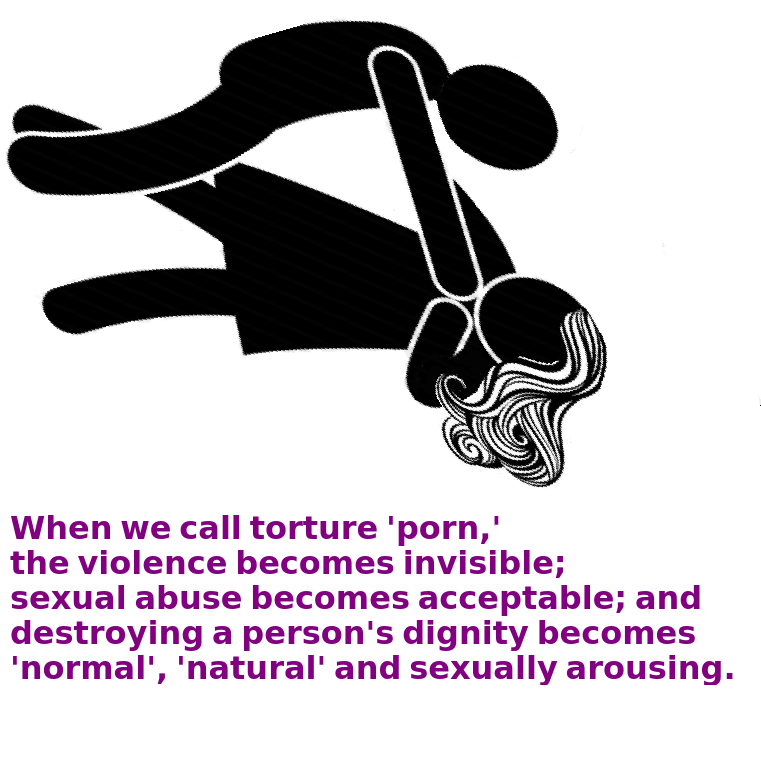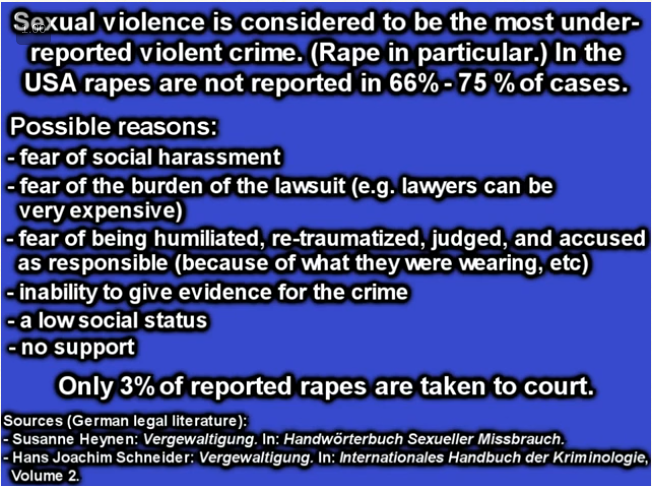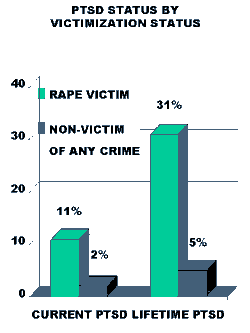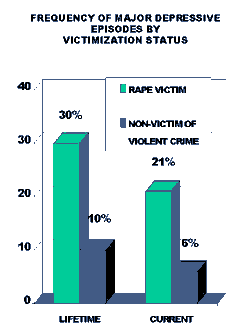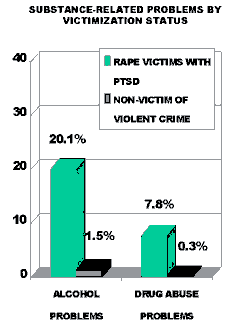- Mind Rewind
- Shocked into Porn
- Site Map
- How Did I Get Here?
- No Shame No Blame
- Compulsion
- Porn Star or Pawn Star?
- Value Inversion
- WOUNDED NOT WICKED
- Value & Sexualised Power
- Emotional Deprivation & Bullying
- The Porn Merchants
- Men as Consumers
- Women as Commodities
- Women as Provocateurs
- Therapy or Surgery?
- BEDROOM BLAME
- PTSD
- Masculinity Under Threat
- Partners
- CHILDREN
- PIMP EMPIRE
- BUSINESS PRINCIPLES
- EXPOSING PORN
- Soft Porn Hard Facts
- Porn Gives & Porn Takes
- PORN and Violence
- DEFINING PORN
- CHEMISTRY OF PORN
- What is Sex?
- Men Escaping Women Criticising
- Cheating
- Sexual Tastes & Fetishes
- Rape
- What's Normal?
- LOOK BUT DON'T TOUCH?
- Australia
- Trauma Bonding & Narcissism
- HEALING THE WOUND
- UnPorn Thinking
- You're Powerless? Wot Rot!!
- Withdrawal Process
- TRIGGERS
- Dreams
- Preventing Sexual Assault
- The Foundation of Porn
- Love is the Answer
- God & Porn
- The Religion of Porn
- Sexual Freedom
- 10 Boundaries
- Case Studies
- Coolidge Effect
- News
- Articles
- Porn as Free Speech
- Online Safety Bill USA
- PORN IMPACT SURVEY
- BLOG
- PILOT PROGRAMME
- GROUPS
- About Us
- Contact
- Porn-Free Partners
- Curiosity Gateway
Rape is Very Common
Rape Isn't Sexy
&
Rape Is not Sex
Rape is a Weapon
In the book "Half the Sky - How to Change the World" by Nicholas D. Kristof & Sheryl Wudunn, in the chapter "The Shame of Honor," can be found the real purpose of rape - a weapon of war.
Behind the rapes are sexism and misogyny. It's not normal libido that prompts the rapes. It's men who are hypersexualised. Porn educates men to think and practice sexism and misogyny.
In many countries:
In western societies, the same system of female oppression operates but it appears in different forms - cleverly disguised as porn.
Porn operates in its various forms, as a religion, a tradition, a culture and as supersitition. It is accepted as being 'normal, harmless, a tool to spice up a dull marriage.' Society is beguiled into believing that 'all men do porn' and therefore it must be a normal male sexual behaviour. Society is not informed about the serious side effects that watching porn creates such as the condition of being hypersexualised, erectile dysfunction, broken relationships, betrayal of the partner's trust, divorce or Complex Traumatic Stress Disorder in the partners. Pornified society never displays what truly normal sexuality looks like. If we don't know what normal looks like, we don't recognise fake sexuality.
Pornified culture educates society regarding the value of females and insists that female value and roles have to do with their ability to arouse males sexually. Why do women embrace such abusive roles and accept their designated positions in society and engage in demeaning 'professions' such as being 'sex workers' eg strippers, prostitutes, escorts? Because women don't know what it's like to have real dignity and value as a whole person.
If 'men' praise a women for being a good sex slave, should women be pleased or should they reject the men's 'praise' and seek to escape the slavery?
Pornified society would break down if women rejected being treated as sex-slaves and sexual commodities.
How did women become so brainwashed that they can't see through the pornified mindset that traps them into inequality with men?
Slowly but surely, women have been convinced by pornified media, that their value lies in being able to sexually arouse males.
Because they accept pornified doctrines, women compete against each other to be 'more sexy' than their female friends. Women accept being robbed of their dignity to receive the 'praise' of men, or to accept payment for renting their private organs for men to masturbate inside at the cost of their emotional health. Women allow their mental health to be injured when they disassociate their emotions from their body's response to being raped, molested and abused in these 'professions.'
The wounds of rape are severe. The wounds of being a sex-slave/sex 'worker' are severe. The longer the injuries are hidden, repressed and denied, the more severe the long-term emotional and mental effects can become.
- "Mass rape is as effective as slaughtering people" (p 92);
- So called 'honor rapes' are intended to disgrace the victim or deman her clan (p 92);
- Rape becomes a tool of war in conservative societies precisely because female sexuality is so sacred. Codes of seual honor, in which women are valued based on their chastity, ostensibly protect women, but in fact they create an environment in which women are systematically dishonoured (p 92);
- The most cost-effective way to terrorize civilian populations is to conduct rapes of stunning brutality (p 93);
- All militias here rape women, to show their strength and to show your weakness... also a viciousness, a mentality of hatred, and it's women who pay the price (p 94);
- it has probably become more dangerous to be a woman than a soldier in armed conflict (p 94);
- if we see girls, it's our right....we can violate them (p 95).
Behind the rapes are sexism and misogyny. It's not normal libido that prompts the rapes. It's men who are hypersexualised. Porn educates men to think and practice sexism and misogyny.
- Why are women so much more likely to be stripped naked and sexually humiliated than men? (p 75);
- As for wife beating, one survey found support for it from 62% of Indian village women themelves (p76).
In many countries:
- women are 'legally' beaten by their fathers, brothers, uncles, husbands;
- female genital mutilation is accepted and expected;
- female infanticide is routinely practiced and accepted;
- child-brides abound;
- women are routinely uneducated
- females are routinely deprived of medical assistance
- elderly females are removed from society and left without support
In western societies, the same system of female oppression operates but it appears in different forms - cleverly disguised as porn.
Porn operates in its various forms, as a religion, a tradition, a culture and as supersitition. It is accepted as being 'normal, harmless, a tool to spice up a dull marriage.' Society is beguiled into believing that 'all men do porn' and therefore it must be a normal male sexual behaviour. Society is not informed about the serious side effects that watching porn creates such as the condition of being hypersexualised, erectile dysfunction, broken relationships, betrayal of the partner's trust, divorce or Complex Traumatic Stress Disorder in the partners. Pornified society never displays what truly normal sexuality looks like. If we don't know what normal looks like, we don't recognise fake sexuality.
Pornified culture educates society regarding the value of females and insists that female value and roles have to do with their ability to arouse males sexually. Why do women embrace such abusive roles and accept their designated positions in society and engage in demeaning 'professions' such as being 'sex workers' eg strippers, prostitutes, escorts? Because women don't know what it's like to have real dignity and value as a whole person.
If 'men' praise a women for being a good sex slave, should women be pleased or should they reject the men's 'praise' and seek to escape the slavery?
Pornified society would break down if women rejected being treated as sex-slaves and sexual commodities.
How did women become so brainwashed that they can't see through the pornified mindset that traps them into inequality with men?
Slowly but surely, women have been convinced by pornified media, that their value lies in being able to sexually arouse males.
Because they accept pornified doctrines, women compete against each other to be 'more sexy' than their female friends. Women accept being robbed of their dignity to receive the 'praise' of men, or to accept payment for renting their private organs for men to masturbate inside at the cost of their emotional health. Women allow their mental health to be injured when they disassociate their emotions from their body's response to being raped, molested and abused in these 'professions.'
The wounds of rape are severe. The wounds of being a sex-slave/sex 'worker' are severe. The longer the injuries are hidden, repressed and denied, the more severe the long-term emotional and mental effects can become.
The Effects of Rape
Porn promotes rape as being exciting, sexy and that all women want to be raped. Let's examine what rape really is so we can determine if logically, a normal human being would want to be treated in that way.
The following passages were written by STARRE VARTAN
A 2011 study found cortisol levels in rape victims were elevated in comparison to those of other traumatized people.
Not only does this study point to the different (and more severe) mental health outcomes of those who have been raped, but it emphasizes the possible longevity of these untreated traumas.
Besides increased likelihood of PTSD, anxiety, and depression, women who are raped also suffer from much higher levels of sexual dysfunction. The most common symptom is dyspareunia, which is pain during intercourse. But other issues, including menstrual issues, chronic pelvic pain, and inhibited arousal and desire can be lifelong issues.
Unlike other types of physical assault, or even traumatic accidents, rape—even if it is ultimately about power—is connected to sex: an act intimately allied with pleasure, relationships, and, sometimes, procreation. This makes its propensity for long-term damage unique. As psychotherapist Laurence Miller writes in his 2013 survey of rape causality: “No other physical encounter between human beings carries such a disparate potential for good or evil.”
We do know that the cultural reaction to rape—from communities, police departments, medical personnel, and the aggressors themselves—can significantly affect how well a victim recovers, the length of the recovery period, and if he or she develops PTSD. A 2004 study looked at the effects of secondary victimization (defined as "victim-blaming behaviors and practices engaged in by legal and medical personnel, which exacerbates victims' trauma"). Most women in the study said that they felt guilty, ashamed, depressed, anxious, distrustful, and, most disturbingly, "reluctant to seek further help" after reporting their rapes. Not surprisingly, the authors concluded that these experiences were "significantly positively correlated with posttraumatic stress symptomatology." https://psmag.com/social-justice/lifelong-consequences-rape-96056
A 2011 study found cortisol levels in rape victims were elevated in comparison to those of other traumatized people.
Not only does this study point to the different (and more severe) mental health outcomes of those who have been raped, but it emphasizes the possible longevity of these untreated traumas.
Besides increased likelihood of PTSD, anxiety, and depression, women who are raped also suffer from much higher levels of sexual dysfunction. The most common symptom is dyspareunia, which is pain during intercourse. But other issues, including menstrual issues, chronic pelvic pain, and inhibited arousal and desire can be lifelong issues.
Unlike other types of physical assault, or even traumatic accidents, rape—even if it is ultimately about power—is connected to sex: an act intimately allied with pleasure, relationships, and, sometimes, procreation. This makes its propensity for long-term damage unique. As psychotherapist Laurence Miller writes in his 2013 survey of rape causality: “No other physical encounter between human beings carries such a disparate potential for good or evil.”
We do know that the cultural reaction to rape—from communities, police departments, medical personnel, and the aggressors themselves—can significantly affect how well a victim recovers, the length of the recovery period, and if he or she develops PTSD. A 2004 study looked at the effects of secondary victimization (defined as "victim-blaming behaviors and practices engaged in by legal and medical personnel, which exacerbates victims' trauma"). Most women in the study said that they felt guilty, ashamed, depressed, anxious, distrustful, and, most disturbingly, "reluctant to seek further help" after reporting their rapes. Not surprisingly, the authors concluded that these experiences were "significantly positively correlated with posttraumatic stress symptomatology." https://psmag.com/social-justice/lifelong-consequences-rape-96056
The Mental Health Impact of Rape
Dean G. Kilpatrick, Ph.D.
National Violence Against Women Prevention Research Center
Medical University of South Carolina
The National Women's Study investigated the effect of rape on women's mental health.
"The first mental health problem examined was post traumatic stress disorder (PTSD), an extremely debilitating disorder occurring after a highly disturbing traumatic event, such as military combat or violent crime. Almost one-third (31%) of all rape victims developed PTSD sometime during their lifetime; and more than one in ten rape victims (11%) still has PTSD today. "
Statistics of the study:
Rape victims were 6.2 times more likely to develop PTSD than women who had never been victims of crime
(31% vs 5%). Rape victims were 5.5 times more likely to have current PTSD than those who had never been victims of crime (11% Vs 2%).
Dean G. Kilpatrick, Ph.D.
National Violence Against Women Prevention Research Center
Medical University of South Carolina
The National Women's Study investigated the effect of rape on women's mental health.
"The first mental health problem examined was post traumatic stress disorder (PTSD), an extremely debilitating disorder occurring after a highly disturbing traumatic event, such as military combat or violent crime. Almost one-third (31%) of all rape victims developed PTSD sometime during their lifetime; and more than one in ten rape victims (11%) still has PTSD today. "
Statistics of the study:
Rape victims were 6.2 times more likely to develop PTSD than women who had never been victims of crime
(31% vs 5%). Rape victims were 5.5 times more likely to have current PTSD than those who had never been victims of crime (11% Vs 2%).
- By contrast, only 10% of women never victimized by violent crime had ever had a major depressive episode; and only 6% had a major depressive episode when assessed.
Rape victims were three times more likely than non-victims of crime to have ever had a major depressive episode (30% Vs 10%). Also, they were 3.5 times more likely to be currently experiencing a major depressive episode (21% Vs 6%).
Dean G. Kilpatrick, Ph.D. continues his analysis of The National Women's Study.
Dr Kilpatrick notes that the study produced dramatic confirmation of the mental health impact of rape. The study determined comparative rates of several mental health problems among rape victims and non-victims. The study ascertained whether rape victims were more likely than non-victims to experience these devastating mental health problems.
Post-Traumatic Stress Disorder (PTSD)
Post-traumatic stress disorder (PTSD) is an extremely debilitating mental disorder that occurs after a traumatic event, such as military combat or violent crime. Almost one-third (31%) of all rape victims developed PTSD sometime during their lifetime; and more than one in ten rape victims (11%) still has PTSD today.
It would be very bad for sales, if the porn merchants told the truth to their customers, that being raped is equivalent to being assaulted in military combat. Terror, fear, powerlessness, vulnerability in the face of a violent, murdering enemy.... these are the same elements that cause PTSD in combat veterans but they are shared by rape victims.
How ludicrous is porn's claim that 'every woman wants to be raped?' Would any sane human being WANT to be terrified, feel powerless, vulnerable and enjoy being in immediate life-threatening danger? Is that sexy? Is that satisfying? If so, why don't multitudes of sexually aroused humans flock to war torn countries to experience the ultimate sexual thrill?
Rape victims were 6.2 times more likely to develop PTSD than women who had never been victims of crime
(31% vs 5%). Rape victims were 5.5 times more likely to have current PTSD than those who had never been victims of crime (11% Vs 2%).
Rape victims were 6.2 times more likely to develop PTSD than women who had never been victims of crime
(31% vs 5%). Rape victims were 5.5 times more likely to have current PTSD than those who had never been victims of crime (11% Vs 2%).
Other Mental Health Problems
Major depression
Major depression is a problem affecting many women, not just rape victims. However, 30% of rape victims had experienced at least one major depressive episode in their lifetimes, and 21% of all rape victims were experiencing a major depressive episode at the time of assessment:
Some mental heath problems are life threatening. When asked if they ever thought seriously about committing suicide:
Major depression
Major depression is a problem affecting many women, not just rape victims. However, 30% of rape victims had experienced at least one major depressive episode in their lifetimes, and 21% of all rape victims were experiencing a major depressive episode at the time of assessment:
- By contrast, only 10% of women never victimized by violent crime had ever had a major depressive episode; and only 6% had a major depressive episode when assessed.
Rape victims were three times more likely than non-victims of crime to have ever had a major depressive episode (30% Vs 10%). Also, they were 3.5 times more likely to be currently experiencing a major depressive episode (21% Vs 6%).
Some mental heath problems are life threatening. When asked if they ever thought seriously about committing suicide:
- One-third (33%) of the rape victims and 8% of the non-victims of crime said yes.
Rape victims were 4.1 times more likely than non-crime victims to have contemplated suicide.
Rape victims were 13 times more likely than non-crime victims to have attempted suicide (13% Vs 1%).
Substance Abuse
There was substantial evidence that rape victims had higher rates than non-victims of drug and alcohol consumption and a greater likelihood of having drug and alcohol-related problems. Compared to women who had never been crime victims, rape victims with RR-PTSD were:
There was substantial evidence that rape victims had higher rates than non-victims of drug and alcohol consumption and a greater likelihood of having drug and alcohol-related problems. Compared to women who had never been crime victims, rape victims with RR-PTSD were:
- 13.4 times more likely to have two or more major alcohol problems (20.1% Vs 1.5%).
- 26 times more likely to have two or more major serious drug abuse problems (7.8% Vs 0.3%).
Rape is a mental health problem, a public health systems and a problem for the criminal justice system.
Fears and Concerns After Rape
AThe National Women�s Study identified several critical concerns. To determine whether victims� concerns have changed over time, the study divided these concerns into two categories: all rape victims vs. victims that had been raped within the previous five years (1987-91). The changes in concerns included:
- The victim's relatives knowing about the assault: Relatively little change over time. Seventy-one percent of all victims and 66% of victims within past five years are concerned about relatives finding out about the rape.
- People blaming the victim: Rape victims are concerned about being blamed for the rape, and this has not changed over time. In fact, 69% of all victims and 66% of recent rape victims say they worry about being blamed.
- People outside her family knowing she had been sexually assaulted: No significant difference. Sixty-eight percent of all victims and 61% of rape victims within the past five years are concerned about this.
- The victim's identity being revealed in the news media: Women raped within the last five years are more likely to be concerned about the possibility of their names being published than all rape victims (60% vs. 50%).
- Becoming pregnant: Sixty-one percent of recent rape victims, as opposed to 34% of all rape victims, are concerned about getting pregnant.
- Contracting a sexually transmitted disease (not including HIV/AIDS): Recent rape victims were more than twice as concerned as all rape victims about contracting sexually transmitted diseases. (43% Vs 19%).
- Contracting HIV/AIDS: Recent rape victims were four times more likely than all victims to be concerned about getting HIV/AIDS as a result of the rape - regardless of the recency of the rape (40% Vs 10%).
All information in the Mental Health taken from the article by Dr Dean G. Kilpatrick, Ph.D. of the National Violence Against Women Prevention Research Center Medical University of South Carolina
The stigma of rape persists.
Victims are greatly concerned about others discovering they were raped.
Victims are greatly concerned about others discovering they were raped.
Please get emotional support from a trained rape counsellor to overcome the horrific emotional wounds that are inflicted during rape.
- Mind Rewind
- Shocked into Porn
- Site Map
- How Did I Get Here?
- No Shame No Blame
- Compulsion
- Porn Star or Pawn Star?
- Value Inversion
- WOUNDED NOT WICKED
- Value & Sexualised Power
- Emotional Deprivation & Bullying
- The Porn Merchants
- Men as Consumers
- Women as Commodities
- Women as Provocateurs
- Therapy or Surgery?
- BEDROOM BLAME
- PTSD
- Masculinity Under Threat
- Partners
- CHILDREN
- PIMP EMPIRE
- BUSINESS PRINCIPLES
- EXPOSING PORN
- Soft Porn Hard Facts
- Porn Gives & Porn Takes
- PORN and Violence
- DEFINING PORN
- CHEMISTRY OF PORN
- What is Sex?
- Men Escaping Women Criticising
- Cheating
- Sexual Tastes & Fetishes
- Rape
- What's Normal?
- LOOK BUT DON'T TOUCH?
- Australia
- Trauma Bonding & Narcissism
- HEALING THE WOUND
- UnPorn Thinking
- You're Powerless? Wot Rot!!
- Withdrawal Process
- TRIGGERS
- Dreams
- Preventing Sexual Assault
- The Foundation of Porn
- Love is the Answer
- God & Porn
- The Religion of Porn
- Sexual Freedom
- 10 Boundaries
- Case Studies
- Coolidge Effect
- News
- Articles
- Porn as Free Speech
- Online Safety Bill USA
- PORN IMPACT SURVEY
- BLOG
- PILOT PROGRAMME
- GROUPS
- About Us
- Contact
- Porn-Free Partners
- Curiosity Gateway
